When enlisting in the Air Force, all new recruits are able to select a job, called Air Force Specialty Codes, or AFSCs.
But first, they have to meet the minimum qualifications for that job, including a minimum score on the Armed Services Vocational Aptitude Battery, or ASVAB.
The ASVAB determines which skills the test-taker has an aptitude for and where in the military they may excel.
Anyone wanting to enter the Air Force must score a minimum of 31 on the ASVAB if they are a high school senior on track to graduate and 50 if they obtained their GED.
The Air Force then looks at a potential recruit’s score in 4 areas of the ASVAB: Mechanical (M), Administrative (A), General (G), and Electronics (E).
These scores are a combination of subtests on the ASVAB, and are calculated as follows:
A = Numerical Operations (NO) + Coding Speed (CS) + Verbal Expression (WK + PC)
G = Verbal Expression (WK + PC) + Arithmetic Reasoning (AR)
E = Arithmetic Reasoning (AR) + Mathematics Knowledge (MK) + Electronics Information (EI) + General Science (GS)
M = Mechanical Comprehension (MC) + General Science (GS) + 2X Auto & Shop Information (AS)
Each job requires a minimum score in one or more areas.
The Air Force divides AFSCs into 9 areas:
- Operations
- Logistics
- Support
- Medical
- Professionals, Paralegal and Chaplain Assistant
- Contracting and Financial
- Special investigations
- Special duty identifiers
- Reporting identifiers
Each specialty is identified by a 5-digit Air Force Specialty Code (AFSC).
Here is a list of all Air Force AFSCs from the Air Force Enlisted Classification Directory, along with the minimum ASVAB score needed to qualify.
A
E
G
M
1. In-Flight Refueling Specialist (1A0X1)
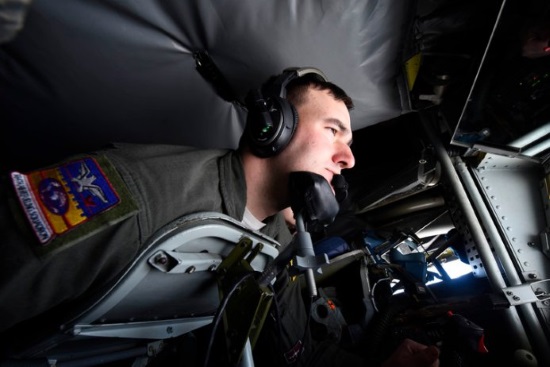
What They Do: They perform in-flight refueling using a specialized boom on the back of a modified KC-135. They provide fuel to aircraft, allowing them to increase their range and duration of flight.
Minimum ASVAB Score: G55
2. Flight Engineer (1A1X1)
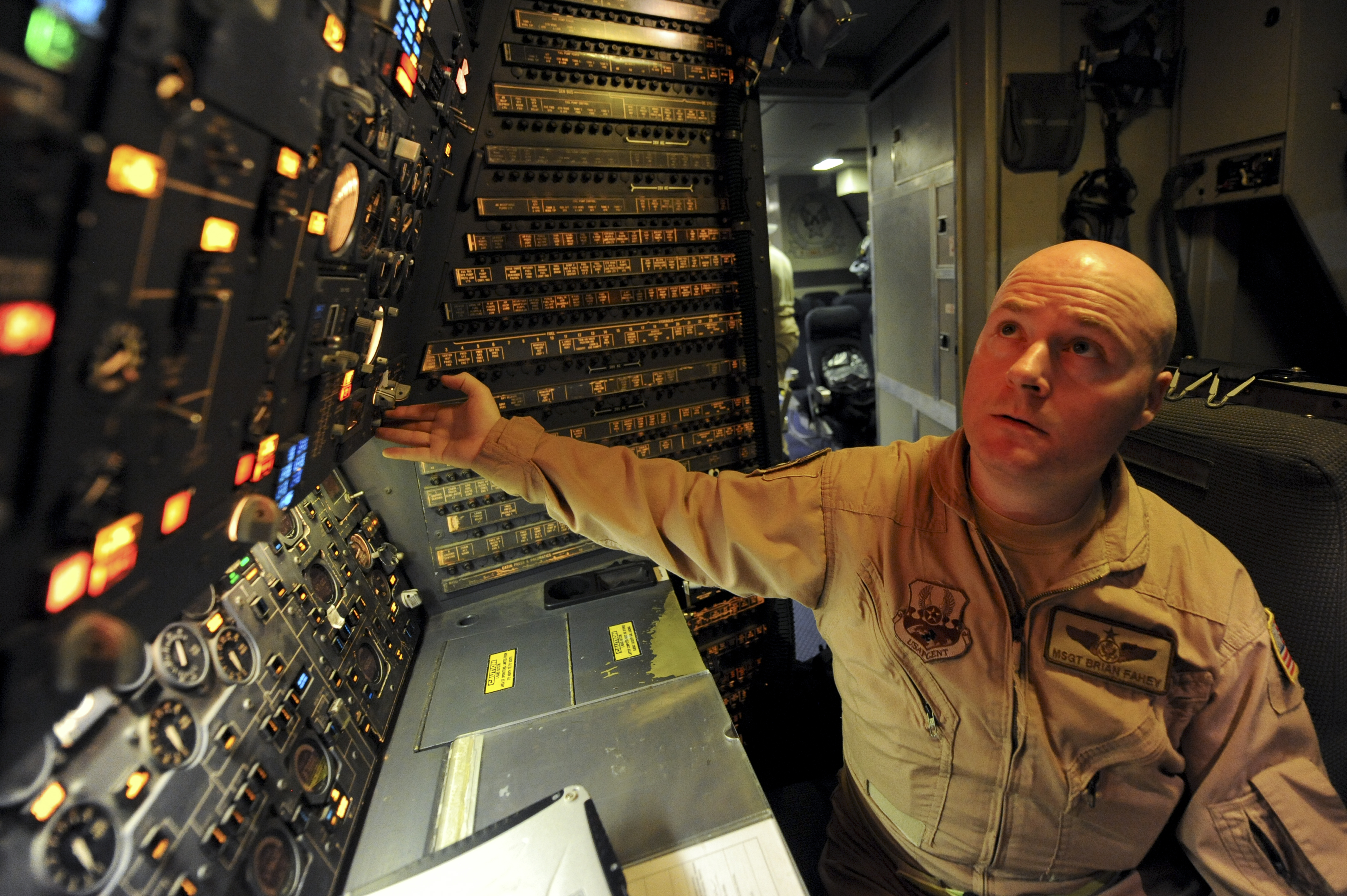
What They Do: They visually inspect aircraft and perform any in-flight duties pertaining to aircraft status. This includes monitoring equipment, such as the engines, control panels, indicators, and devices.
Minimum ASVAB Score: G57
Related Article – ASVAB Scores for Army Jobs
3. Aircraft Loadmaster (1A2X1)
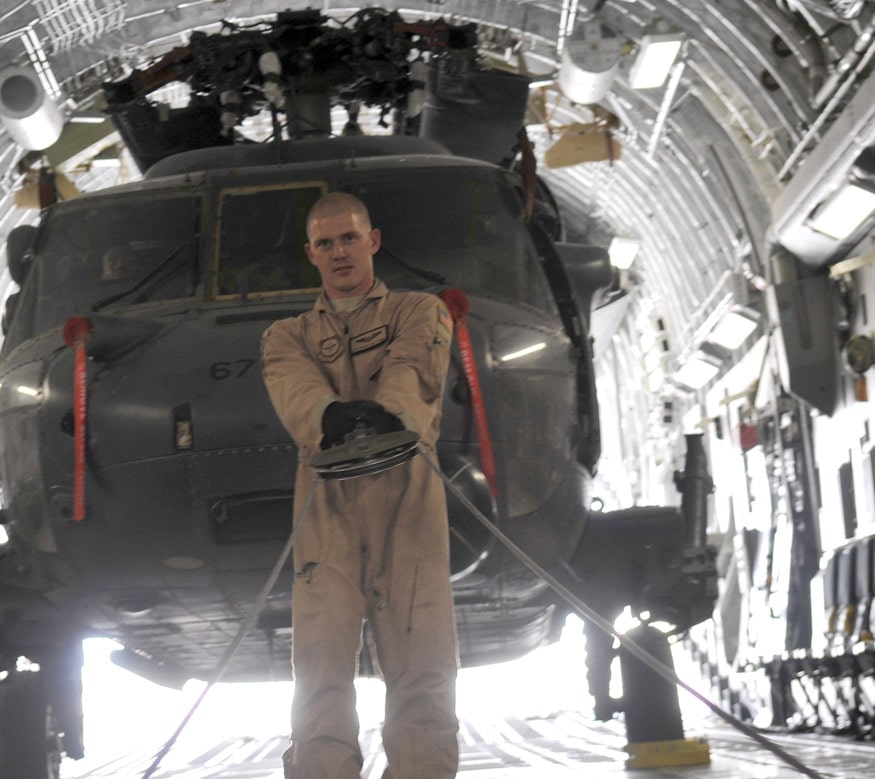
What They Do: They prepare aircraft during the pre-flight and post-flight periods. They are in charge of loading and briefing cargo and passengers, checking placement, and determining the best placement onboard the aircraft. They also service the aircraft with water, fuel, and hydraulics, if needed.
Minimum ASVAB Score: G57
4. Airborne Mission Systems Specialist (1A3X1)
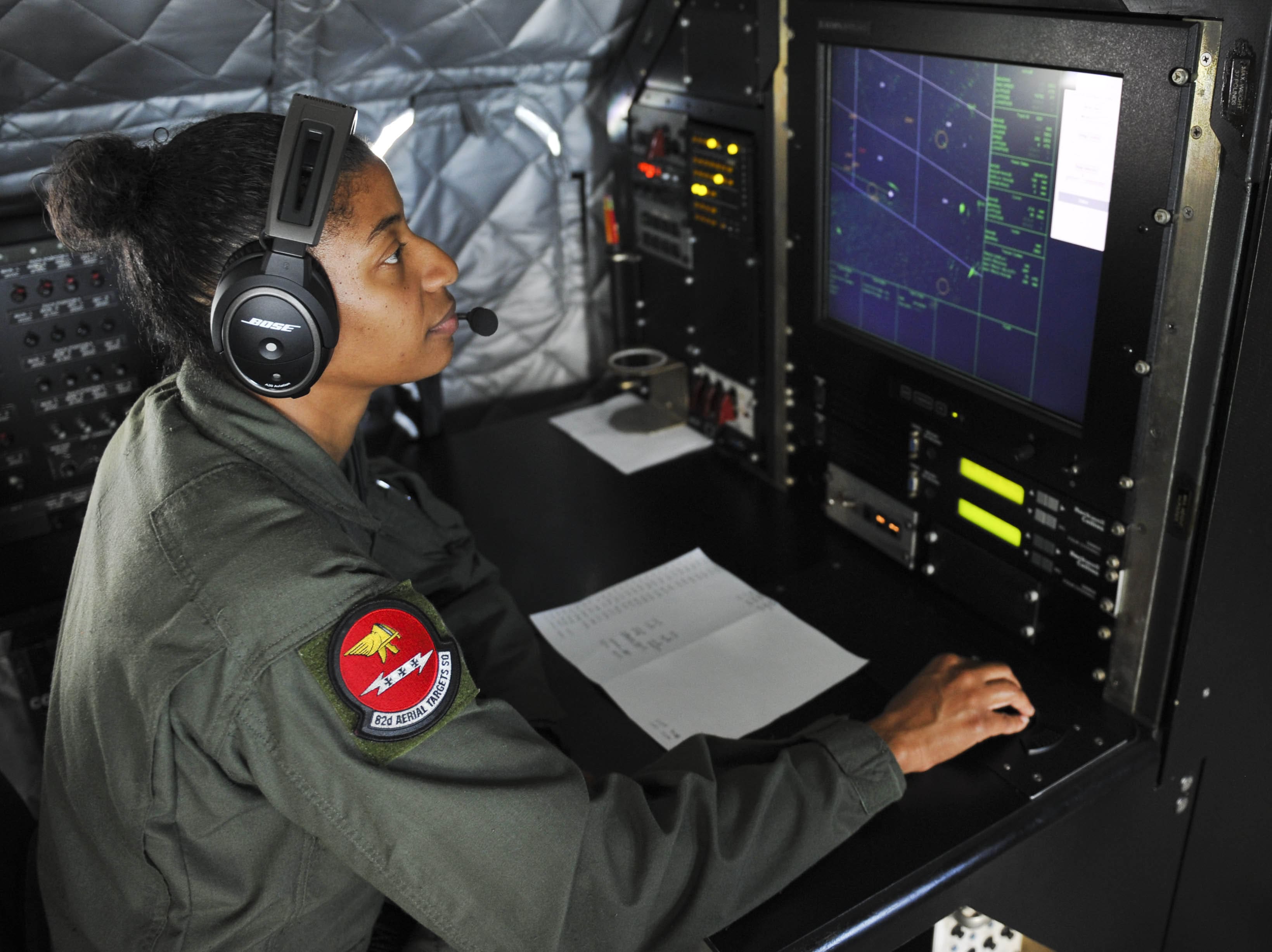
What They Do: They perform aircrew duties for specific missions on a variety of aircraft. This includes operating and maintaining onboard communications, sensors, radar, and electronic equipment to manage battle space during missions.
Minimum ASVAB Score: E70
5. Flight Attendant (1A6X1)
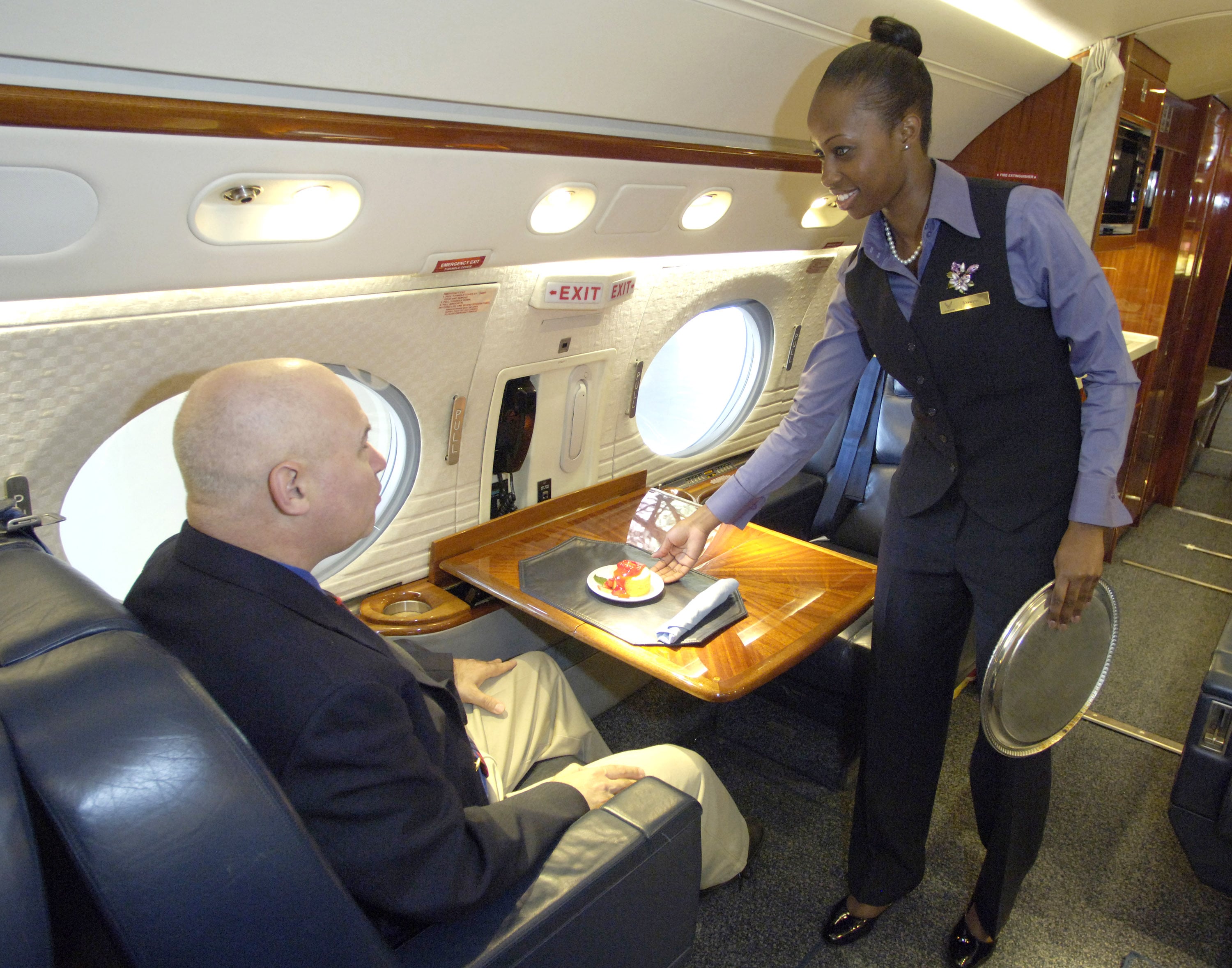
What They Do: They ensure the safety of passengers and perform other cabin duties. The prepare official cabins for top governmental and military leaders and ensure safety equipment is current.
Minimum ASVAB Score: A28
Related Article – How to Join the US Military as a Non-Citizen
6. Airborne Cryptologic Language Analyst (1A8X1)
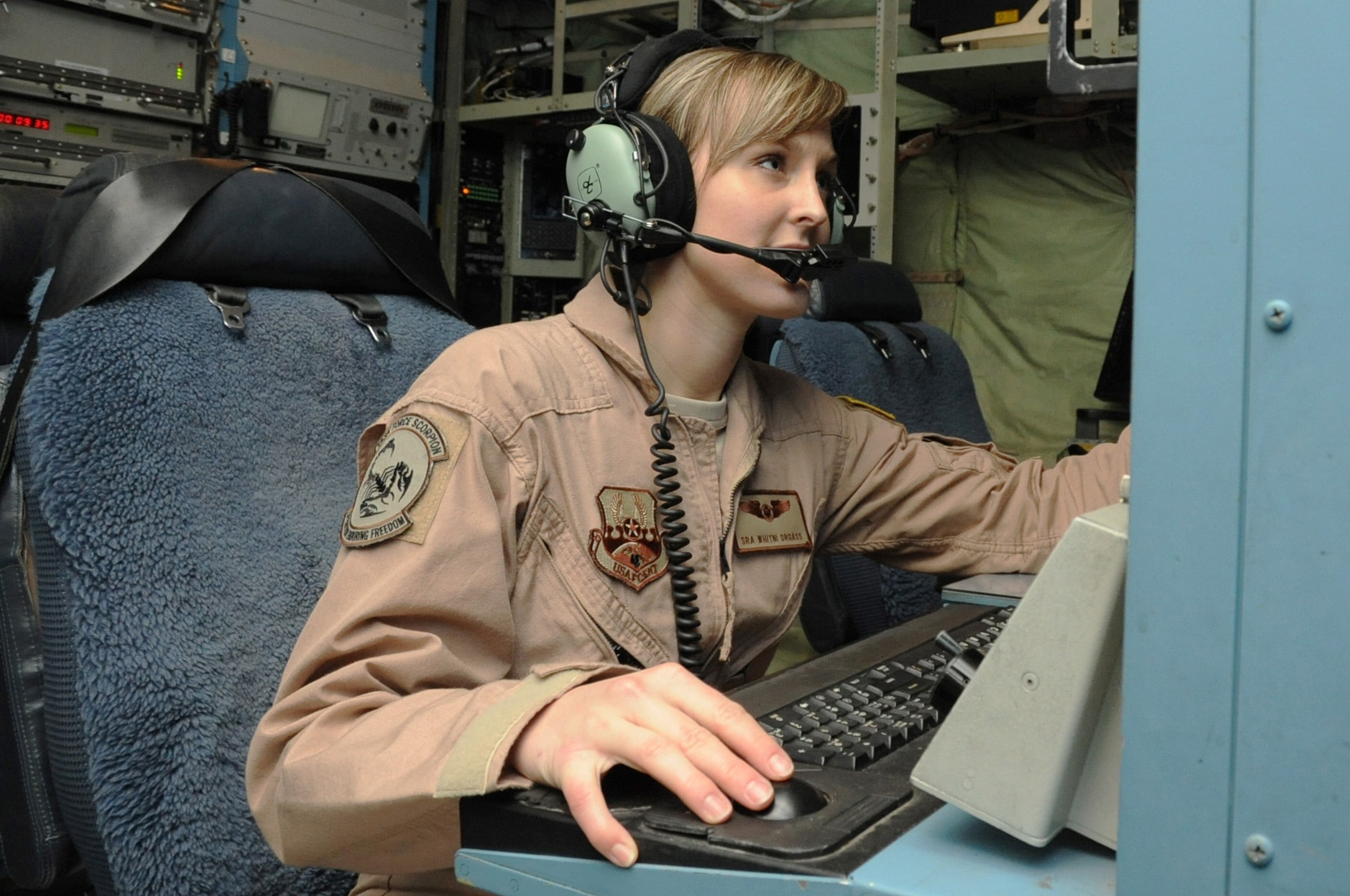
What They Do: They operate signals intelligence information systems onboard aircraft and perform related activities on the ground. They use their foreign language skills to analyze message traffic in flight.
Minimum ASVAB Score: G72
7. Airborne Intelligence, Surveillance, and Reconnaissance Operator (1A8X2)
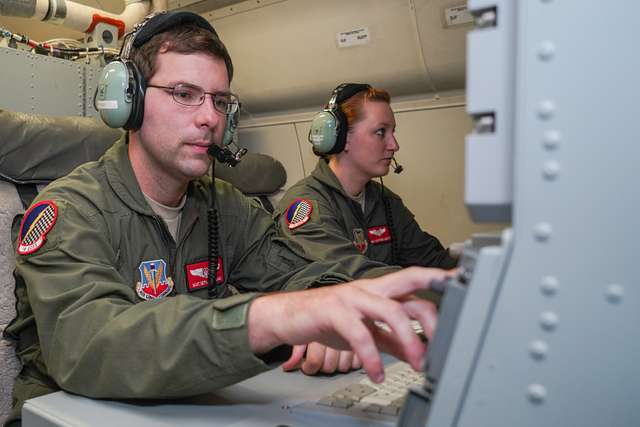
What They Do: They manage and operate all intelligence, surveillance, and reconnaissance equipment onboard aircraft. They are responsible for using equipment to perform ISR-related tasks.
Minimum ASVAB Score: G72
8. Special Mission Aviator (1A9X1)
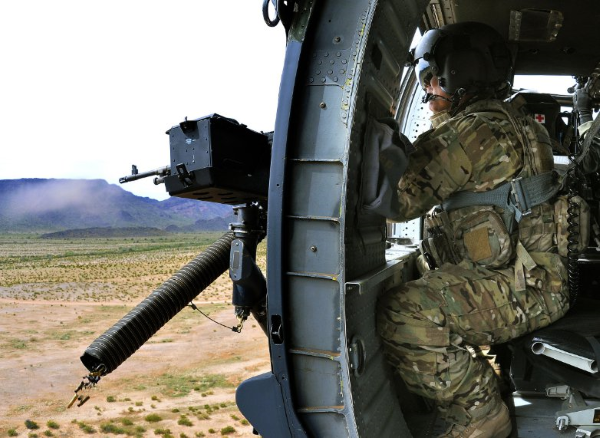
What They Do: They work aboard aircraft for special missions as assigned, such as special operations, combat rescue, personnel recovery, nuclear security, domestic security, fire-fighting, flight test, and distinguished visitor transport.
Minimum ASVAB Score: M60 & G57
Related Article – Top 15 Military Schools For Boys And Girls
9. Cyber Warfare Operations (1B4X1)

What They Do: They manage all cyber-related operations on base and in deployed locations. This includes offensive and defensive cyberspace operations, command and control of cyberspace forces, and deconfliction of cyber-related assets.
Minimum ASVAB Score: G64
10. Aviation Resource Management (1C0X2)
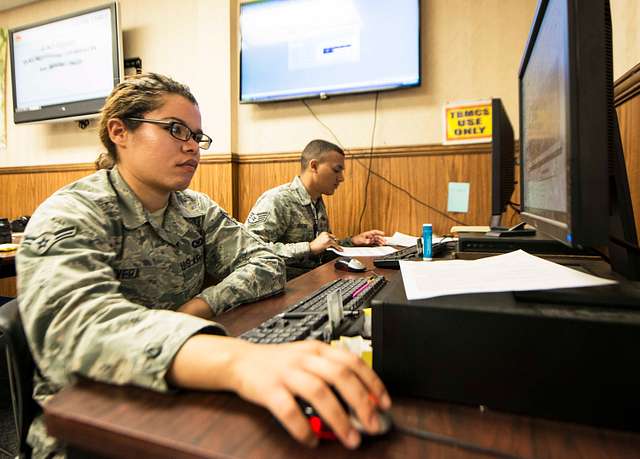
What They Do: They manage all aircrew scheduling, manage the USAF standardization and evaluation program for flight personnel, and plan and schedule flight and ground training. They manage aviation flight records, parachutist jump records, and squadron operations.
Minimum ASVAB Score: A45
Related Article – Military Alphabet: Printable PDF, Flash Cards, Chart, and Quiz
11. Air Traffic Controller (1C1X1)

What They Do: They manage and direct aircraft as they enter and exit terminal air traffic using visual, radar, and non-radar tracking.
Minimum ASVAB Score: G55 & M55
12. Combat Controller (1C2X1)

What They Do: They manage command, control, communications, intelligence, surveillance, and reconnaissance (C3ISR) during military operations. This includes air traffic control and targeting, air strikes, and other communications.
Minimum ASVAB Score: M55 & G55
13. Command and Control Operations (1C3X1)

What They Do: They ensure command operations run smoothly by managing communications and expediting necessary workflow in all scenarios. They work at ground, mobile, and airborne command posts, operations centers, rescue coordination centers, and Combatant Command and Major Command centers.
Minimum ASVAB Score: A55 & G67
Related Article – ASVAB Scores for Navy Jobs
14. Tactical Air Control Party (1C4X1)

What They Do: They find, fix, track, target, and engage enemy forces near friendly forces. They plan, coordinate, direct, and evaluate air strike missions from the ground.
Minimum ASVAB Score: G49
15. Command and Control Battle Management Operations (1C5X1)

What They Do: They monitor the global airspace via radar and electronics systems, providing up-to-the-minute data. They utilize command and control battle management systems and coordinate a variety of missions, such as personnel recovery and search and rescue.
Minimum ASVAB Score: G55
Related Article – CIA Special Activities Division (SAD): 12 Things You Never Knew
16. Space Systems Operations (1C6X1)

What They Do: They manage and perform space control, space force enhancement, and space force support missions. Part of the job includes monitoring launched missiles and satellites, as well as assisting in rocket launches and space flight missions.
Minimum ASVAB Score: E70
17. Airfield Management (1C7X1)

What They Do: They manage operations at airfields, including coordinating with civil engineering, air traffic control, and other entities on base to maintain safe aircraft operations and conditions.
Minimum ASVAB Score: G50 & M40
18. Radar, Airfield & Weather Systems (1C8X3)

What They Do: They ensure that all airfield safety equipment is working perfectly. This includes radar systems, weather equipment, radios, and navigational aids. They install and maintain equipment on the ground used by air traffic control to ensure aircraft safety.
Minimum ASVAB Score: E70
19. Operations Intelligence (1N0X1)

What They Do: They discover, develop, evaluate, and provide intelligence information. They analyze raw data to screen for usable intelligence.
Minimum ASVAB Score: A64
20. Geospatial Intelligence (1N1X1)

What They Do: They analyze imagery from satellites as well as drones and other sources to identify threats. They screen and disseminate multi-sensor geospatial intelligence to support military missions.
Minimum ASVAB Score: G66
21. Signals Intelligence Analyst (1N2X1)

What They Do: They acquire, process, identify, analyze, and report on foreign electromagnetic intelligence emissions. This includes operating electronic intelligence equipment and computer systems and reporting on unusual activity.
Minimum ASVAB Score: G72
22. Cryptologic Language Analyst (1N3X1)
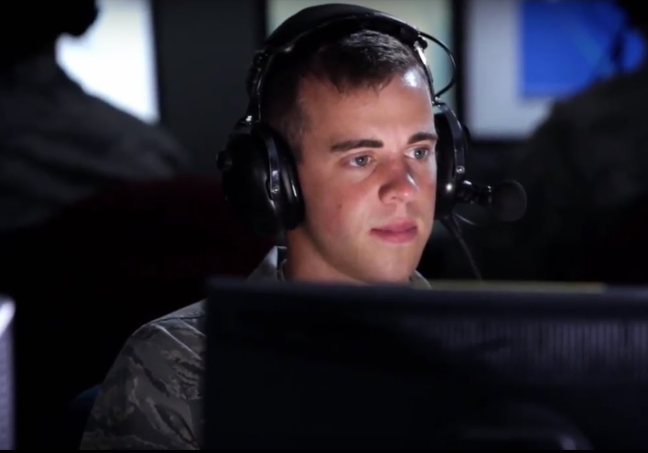
What They Do: They use foreign language skills to collect, transcribe, translate, analyze, and report intelligence.
Minimum ASVAB Score: G72
23. Fusion Analyst (1N4X1)
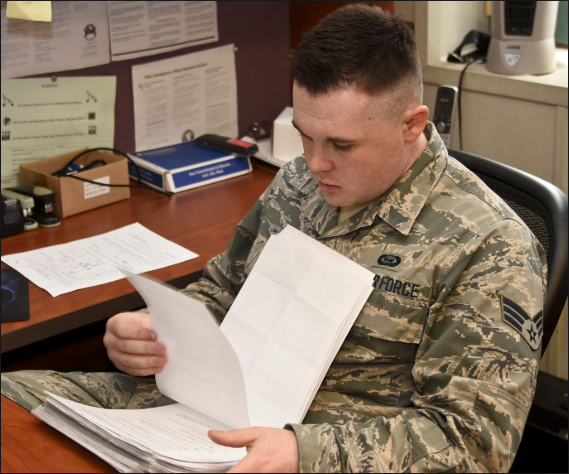
What They Do: They perform intelligence analysis across all domains. This includes analyzing and exploiting information to develop targets and provide overall situational awareness for military personnel and leadership.
Minimum ASVAB Score: G62
24. Human Intelligence Specialist (1N7X1)
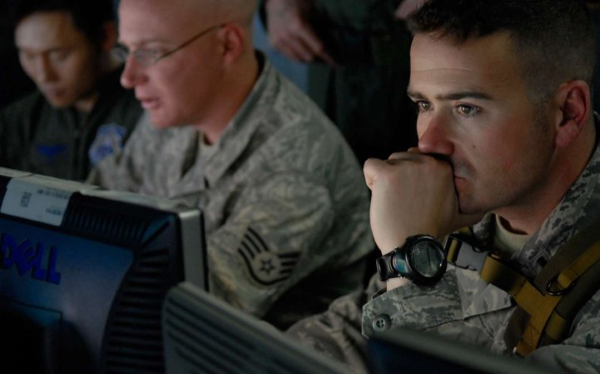
What They Do: They collect and report intelligence gathered from human sources. They also screen documents and open-source information to find potential leads.
Minimum ASVAB Score: G72
25. Targeting Analyst (1N8X1)

What They Do: They perform targeting intelligence missions, including analyzing targets. They also develop targeting solutions to plan and execute an operation.
Minimum ASVAB Score: G49
26. Aircrew Flight Equipment (1P0X1)

What They Do: They perform inspections, maintenance, and adjustments of all aircrew flight equipment, aircrew chemical defense equipment, and other supplies. They are also responsible for all protective clothing, flotation equipment, emergency evacuation systems, and parachutes.
Minimum ASVAB Score: M40
Related Article – ASVAB Scores for Marine Corps jobs
27. Safety (1S0X1)

What They Do: They manage and operate all safety programs, including planning and directing safety-related activities, analyzing mishaps, and assessing risk.
Minimum ASVAB Score: G49
28. Survival Evasion, Resist & Escape (SERE) – (1T0X1)

What They Do: They develop and conduct the SERE programs, including initial training and refresher training. They also assist with personnel recovery operations.
Minimum ASVAB Score: G55
29. Pararescue – PJ’s (1T2X1)

What They Do: They perform, lead, instruct, and evaluate pararescue missions. They work as part of personnel recovery, including in a rapid response capacity. They also provide emergency trauma and field medical care.
Minimum ASVAB Score: G44
Related Article – Delta Force (SFOD-D): Selection, Training, Motto, and More
30. Remotely Piloted Aircraft Sensor Operator (1U0X1)

What They Do: They act as a mission crew member during unmanned or manned aircraft operations. They use onboard sensors to acquire, track, and monitor objects that are in the air, on the ground, or at sea.
Minimum ASVAB Score: G64 or E54
31. Weather (1W0X1)

What They Do: They collect, analyze, and forecast atmospheric and space environmental conditions to ensure informed decision-making and use of military assets.
Minimum ASVAB Score: G66 & E50
32. Special Operations Weather (1W0X2)

What They Do: They collect, analyze, and forecast atmospheric and space environmental conditions in support of special operations missions. They may operate as part of a team or alone, often in challenging conditions.
Minimum ASVAB Score: G66 & E50
33. Avionics Test Stations & Component (2A0X1)
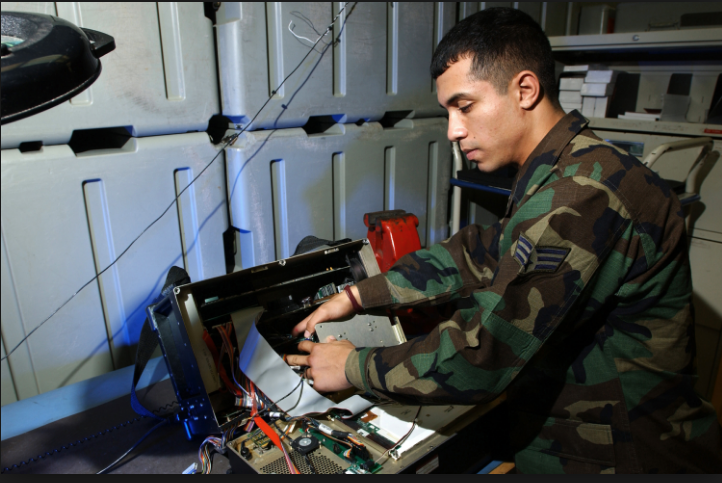
What They Do: They operate avionics test stations, including inspecting, maintaining, programming, and calibrating all avionics test equipment, support equipment, and aircraft avionics equipment.
Minimum ASVAB Score: E70
35. SOF/PR Integrated Instrument and Flight Control Systems (2A2X2)
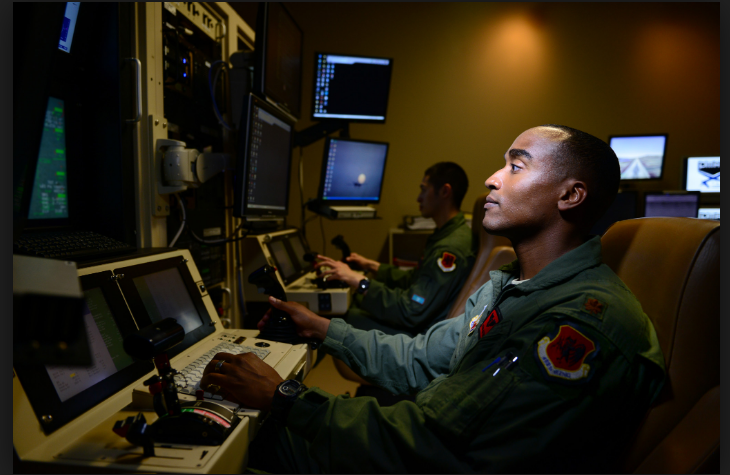
What They Do: They analyze, inspect, remove (if needed), maintain, and install instrument and flight control systems on special operations and personnel recovery aircraft.
Minimum ASVAB Score: E70
36. SOF/PR Integrated Electronic Warfare Systems (2A2X3)
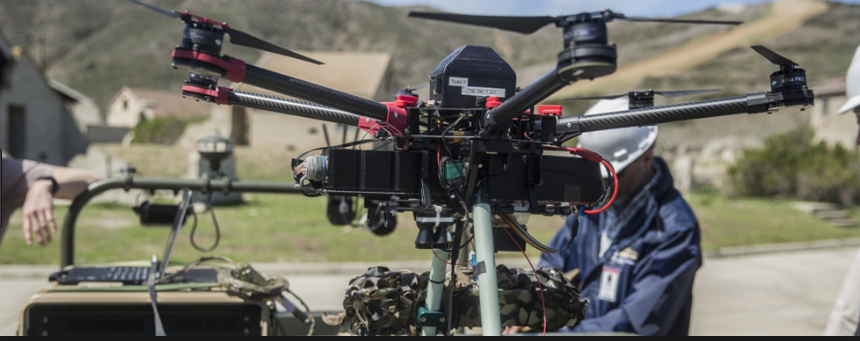
What They Do: They analyze, inspect, remove (if needed), maintain, and install electronic warfare systems on special operations and personnel recovery aircraft.
Minimum ASVAB Score: E70
37. Tactical Aircraft Maintenance (2A3X3)
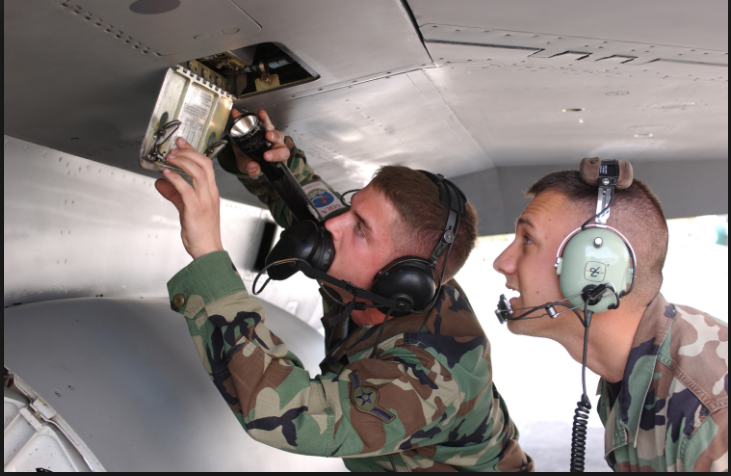
What They Do: They maintain all tactical aircraft, including the support equipment, forms, and records.
Minimum ASVAB Score: M47
38. Fighter Aircraft Integrated Avionics (2A3X4)

What They Do: They repair and inspect integrated avionics systems onboard the A-10/U-2, F-15, and F-16/CV-22 aircraft. They troubleshoot, inspect, remove (if needed), install, repair, modify, and operate all avionics systems on these aircraft and their support equipment.
Minimum ASVAB Score: E70
39. Advanced Fighter Aircraft Integrated Avionics (2A3X5)
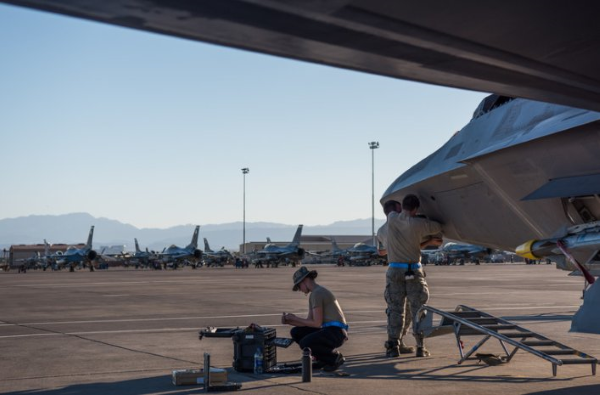
What They Do: They repair and inspect integrated avionics systems onboard the F-22, F-35, and MQ-1/MQ-9/RQ-4 aircraft. They troubleshoot, inspect, remove (if needed), install, repair, modify, and operate all avionics systems on these aircraft and their support equipment.
Minimum ASVAB Score: E70
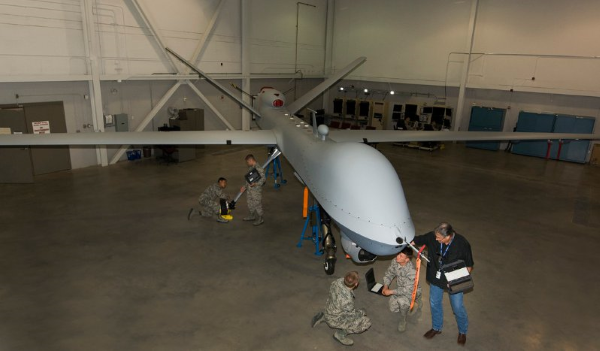
What They Do: They are responsible for the maintenance of fighter/remotely piloted aircraft, including planning, inspecting, and repairing/servicing all related equipment.
Minimum ASVAB Score: M47
41. Airlift/Special Mission Aircraft Maintenance (2A5X1)
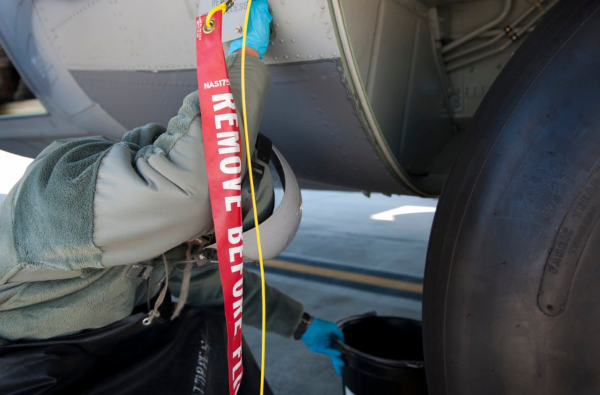
What They Do: They maintain special mission aircraft, including all support equipment, forms, and records.
Minimum ASVAB Score: M47
42. Helicopter/Tiltrotor Aircraft Maintenance (2A5X2)
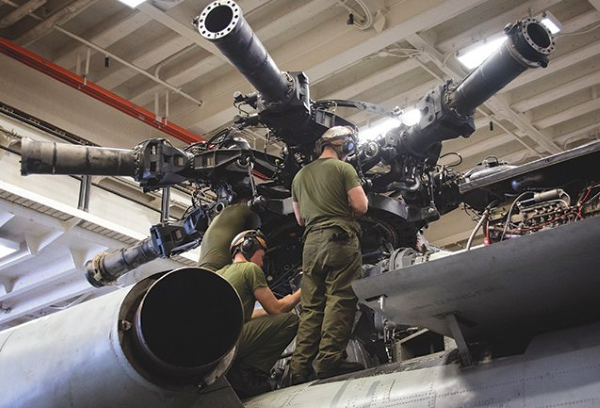
What They Do: They maintain helicopter/tiltrotor aircraft, including all support equipment, forms, and records.
Minimum ASVAB Score: M56
43. Mobility Air Forces Electronic Warfare Systems (2A5X3)
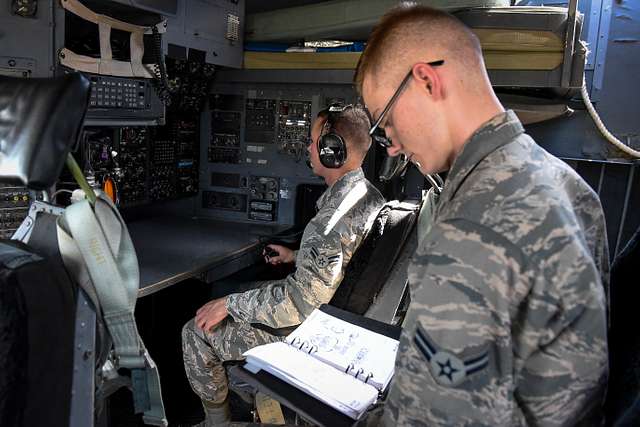
What They Do: These electronics specialists inspect, remove, and install integrated avionics systems in USAF aircraft. These include electronic warfare systems, flight instruments, and video displays.
Minimum ASVAB Score: E70
44. Refuel/Bomber Aircraft Maintenance (2A5X4)

What They Do: They maintain refuel/bomber aircraft, including all support equipment, forms, and records.
Minimum ASVAB Score: M47

What They Do: They inspect, maintain, modify, test, and repair propellers, turboprop and turboshaft engines, jet engines, small gas turbine engines, and related ground support equipment.
Minimum ASVAB Score: M56
46. Aerospace Ground Equipment (2A6X2)

What They Do: They maintain all aerospace ground equipment to support aircraft systems. This includes maintenance, inspecting, and testing equipment.
Minimum ASVAB Score: M47 & E28
47. Aircrew Egress Systems (2A6X3)

What They Do: They maintain all egress systems onboard aircraft, including ejection seats, canopies and hatches, explosive components, subsystems, and related support equipment.
Minimum ASVAB Score: M56
48. Aircraft Fuel Systems (2A6X4)
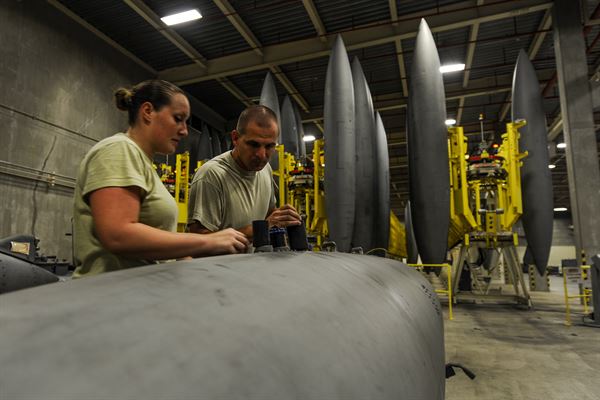
What They Do: They remove, repair, inspect, install, and modify aircraft fuel systems. This includes the integral fuel tanks, bladder cells, and any external tanks. They are also responsible for the hardware and equipment that supports the fuel systems.
Minimum ASVAB Score: M47
49. Aircraft Hydraulic Systems (2A6X5)

What They Do: They troubleshoot, remove, repair, overhaul, inspect, adjust, install, and test aircraft hydraulic and in-flight refueling systems.
Minimum ASVAB Score: M56
50. Aircraft Electrical and Environmental Systems (2A6X6)

What They Do: They troubleshoot, inspect, remove, install, repair, modify, overhaul, and operate electrical and environmental (E&E) onboard systems and related equipment. E&E equipment includes DC and AC current, gas turbine compressors, landing gear, anti-skid, nose wheel steering, and cabin pressurization.
Minimum ASVAB Score: E61 & M41
51. Aircraft Metals Technology (2A7X1)

What They Do: They design, weld, heat treat, fabricate, and machine tools, components, and assemblies for aircraft weapon systems.
Minimum ASVAB Score: M47
52. Nondestructive Inspection (2A7X2)

What They Do: They inspect aerospace weapons systems and support equipment to make sure that they are structurally sound using nondestructive methods. They also perform fluid analysis.
Minimum ASVAB Score: M42
53. Aircraft Structural Maintenance (2A7X3)

What They Do: They design, repair, modify, and fabricate metal, plastic, composite, advanced composite, and other structural parts for aircraft. They are also responsible for preservative treatments for aircraft, missiles, and other equipment.
Minimum ASVAB Score: M47
54. Low Observable Aircraft Maintenance (2A7X5)

What They Do: They evaluate, install, remove, and repair low observable coatings on aircraft to maintain structural integrity.
Minimum ASVAB Score: M47

What They Do: They develop, operate, implement, and analyze manual and automated logistics systems. They work to manage item and monetary accounting, inventory control, financial planning, and warehouse functions.
Minimum ASVAB Score: G44 or A41
69. Traffic Management (2T0X1)
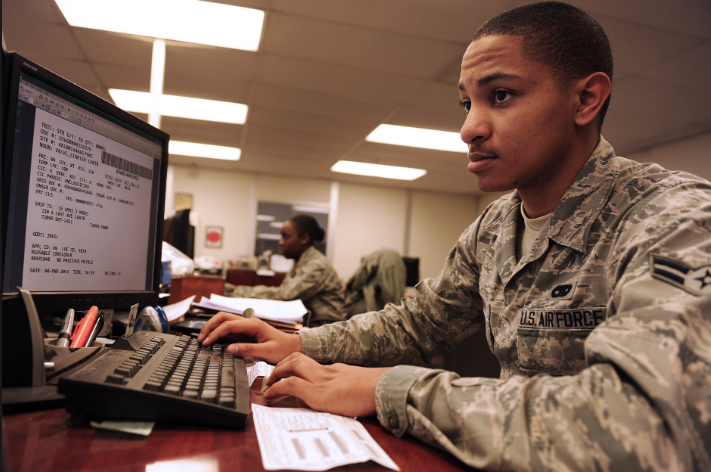
What They Do: They perform all traffic-related activities, including using military and commercial transport to move personnel, materiel, and property.
Minimum ASVAB Score: A35
70. Ground Transportation (2T1X1)
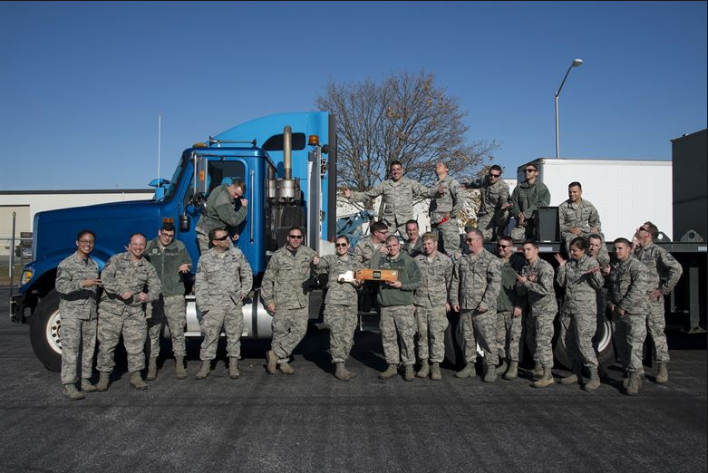
What They Do: They provide ground transportation capabilities for both personnel and cargo. They plan and direct ground transportation, to include light and heavy-duty vehicles such as buses, trucks with semi-trailers, forklifts, and wrecker/recovery vehicles.
Minimum ASVAB Score: M40
71. Air Transportation (2T2X1)
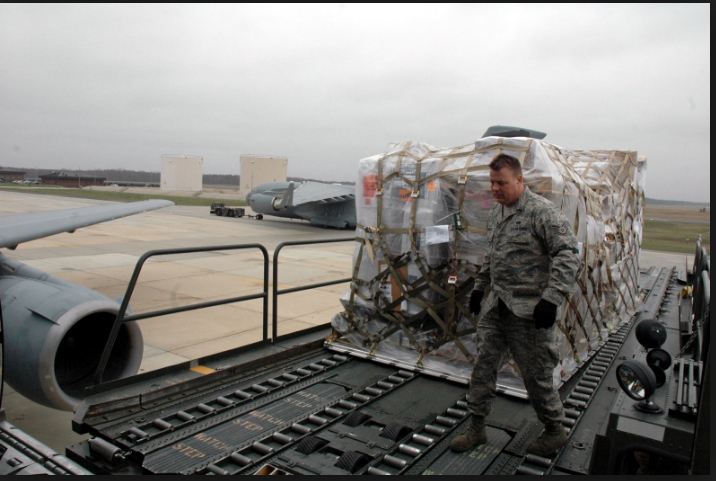
What They Do: They plan, schedule, and process air travel passengers and cargo. This includes loading and unloading passengers, baggage, and cargo from military and commercial-contract aircraft. They also maintain all records and perform aircraft cleaning and meal/supplies delivery.
Minimum ASVAB Score: M47 & A28
72. Mission Generation Vehicular Equipment Maintenance (2T3X1)
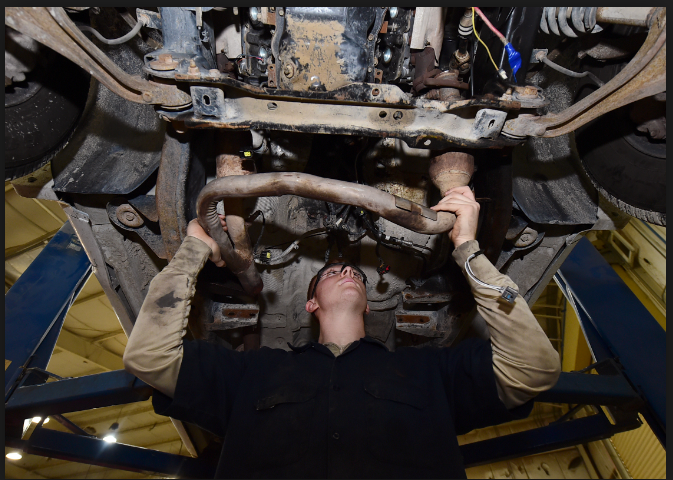
What They Do: They supervise and perform all vehicle maintenance on military and commercial design vehicular equipment. This includes aircraft and equipment towing vehicles, fire fighting vehicles, and material handling equipment.
Minimum ASVAB Score: M47
73. Fleet Management and Analysis (2T3X7)
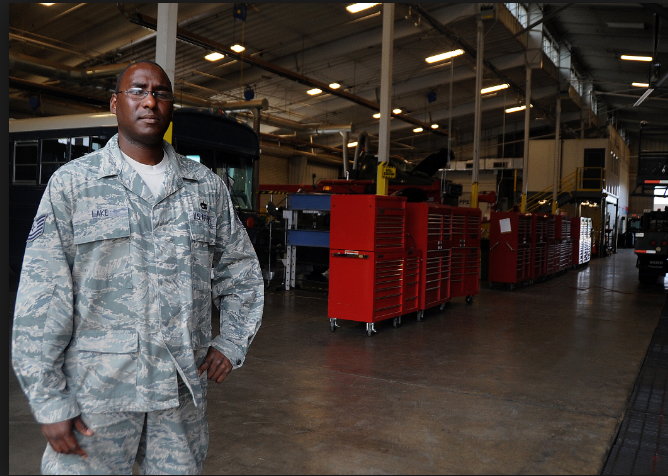
What They Do: They schedule and analyze maintenance performed on vehicles and equipment. They maintain all vehicle data collection systems.
Minimum ASVAB Score: A41
74. Munitions System (2W0X1)

What They Do: They are responsible for the safety, security, and accountability of all non-nuclear munitions. They manage production, identify requirements, operate the automated data processing equipment, inspect and test nonnuclear munitions, and routinely demilitarize nonhazardous munitions.
Minimum ASVAB Score: M60 or G57
75. Aircraft Armament Systems (2W1X1)

What They Do: They load and unload nuclear and nonnuclear munitions, explosives, and propellant devices on aircraft. They also install and maintain aircraft bombs, rockets, and missile release equipment, guns and gun mounts, and related equipment.
Minimum ASVAB Score: M60 or E45
76. Nuclear Weapons (2W2X1)

What They Do: They inspect, maintain, store, handle, modify, repair, and account for nuclear weapons, their components, associated equipment, and related test and handling equipment.
Minimum ASVAB Score: M60
77. Knowledge Operations Management (3D0X1)
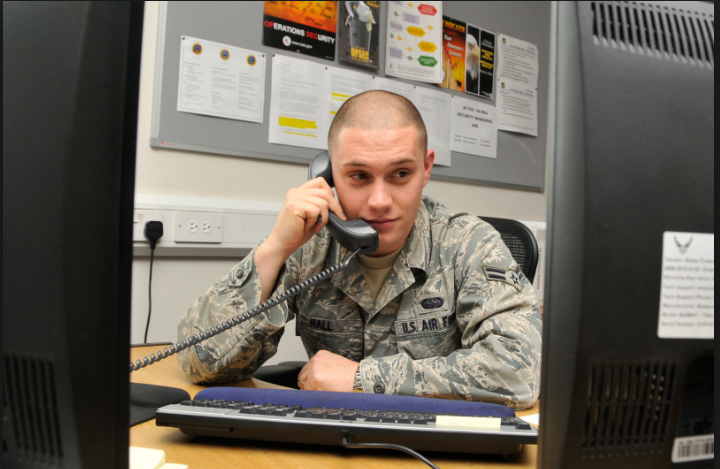
What They Do: They develop and monitor processes, technologies, and practices to identify, capture, organize, and employ information. This includes raw data, documents, practices, policies, and the expertise of individuals.
Minimum ASVAB Score: G64

What They Do: They install, support, and maintain servers operating systems and other computer systems, as well as the software needed for each system. They respond to outages, make sure defensive mechanisms are in place, and act as administrators for the system.
Minimum ASVAB Score: G64
79. Cyber Security (3D0X3)

What They Do: They are responsible for risk management determinations of fixed, deployed, and mobile information systems and telecommunications resources. Their work protects clients, networks, data/voice systems, and databases from unauthorized activity.
Minimum ASVAB Score: G64
80. Computer Systems Programming (3D0X4)

What They Do: They act as computer analysts, coders, testers, and managers in the design, development, maintenance, testing, configuration management, and documentation of software systems and computer database systems.
Minimum ASVAB Score: G64
Related Article – 5 Types Of Military Discharge: Benefits (and Consequences) Explained
81. Client Systems (3D1X1)

What They Do: They are responsible for standard voice, data, video networks, and cryptographic client devices. This includes deploying, sustaining, troubleshooting, and repairing all devices.
Minimum ASVAB Score: E60
82. Cyber Transport Systems (3D1X2)

What They Do: They are responsible for standard voice, data, video network, and cryptographic infrastructure systems. This includes deploying, sustaining, troubleshooting, and repairing these systems.
Minimum ASVAB Score: E70
83. RF Transmission Systems (3D1X3)
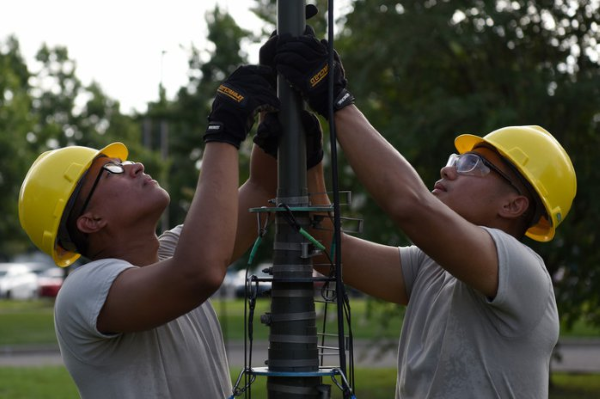
What They Do: They deploy, sustain, troubleshoot, and repair standard radio frequency wireless, line-of-sight, beyond line-of-sight, wideband, and ground-based satellites and encryption transmission devices.
Minimum ASVAB Score: E70
84. Spectrum Operations (3D1X4)

What They Do: They analyze requirements and requests for frequencies to support terrestrial, aircraft, and space systems. They also coordinate radio, radar, land, and other electromagnetic radiating or receiving requirements.
Minimum ASVAB Score: E60
85. Cable and Antenna Systems (3D1X7)

What They Do: They provide command and control capabilities through installation, maintenance, fault isolation, and reconstruction of distribution systems, local area networks, and wide area networks.
Minimum ASVAB Score: E55 or M55
86. Electrical Systems (3E0X1)

What They Do: They install, inspect, maintain, troubleshoot, repair, and modify electrical distribution systems and related components above and below 600 V, airfield lighting systems, and fire alarms.
Minimum ASVAB Score: E35 & M35
87. Electrical Power Production (3E0X2)

What They Do: They install, remove, operate, maintain, and repair electrical power generating and control systems, aircraft arresting systems, and all associated equipment.
Minimum ASVAB Score: M56 & E40
88. Heating, Ventilation, Air Conditioning, & Refrigeration (3E1X1)

What They Do: They install, operate, maintain, and repair HVAC/R systems, combustion equipment, and industrial air compressors.
Minimum ASVAB Score: M47 or E28
89. Pavements and Construction Equipment (3E2X1)
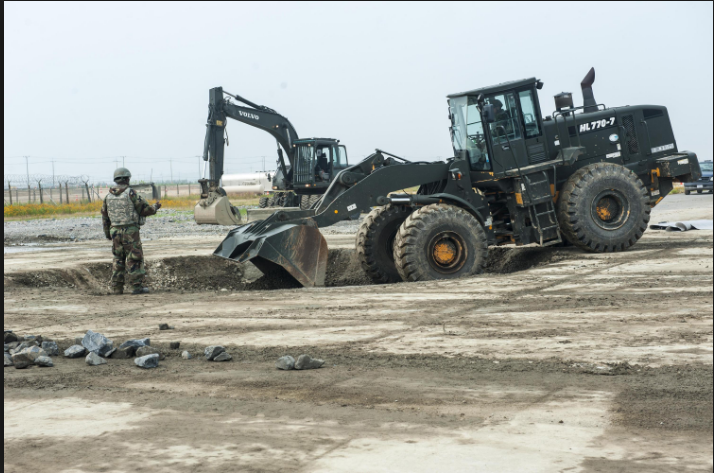
What They Do: They construct and maintain concrete and asphalt runways, aircraft parking aprons, and roads. They also operate heavy construction equipment, such as loaders, graders, dozers, backhoes, and dump trucks, and maintain this equipment.
Minimum ASVAB Score: M40
90. Structural (3E3X1)
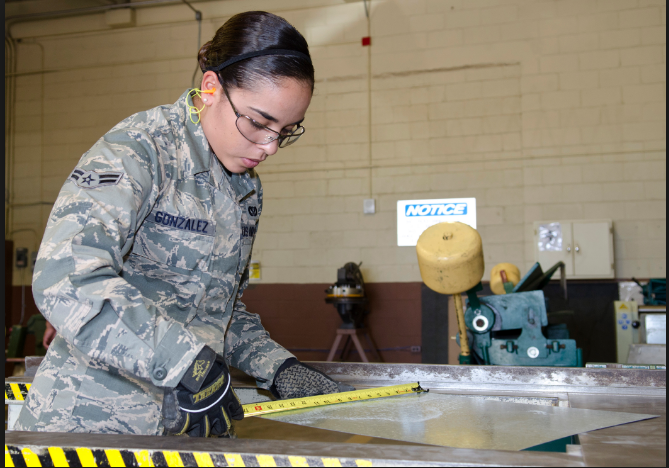
What They Do: They manage, construct, repair, and modify structural systems and wooden, masonry, metal, and concrete buildings. They also fabricate and repair components of these buildings.
Minimum ASVAB Score: M47
91. Water and Fuel Systems Maintenance (3E4X1)
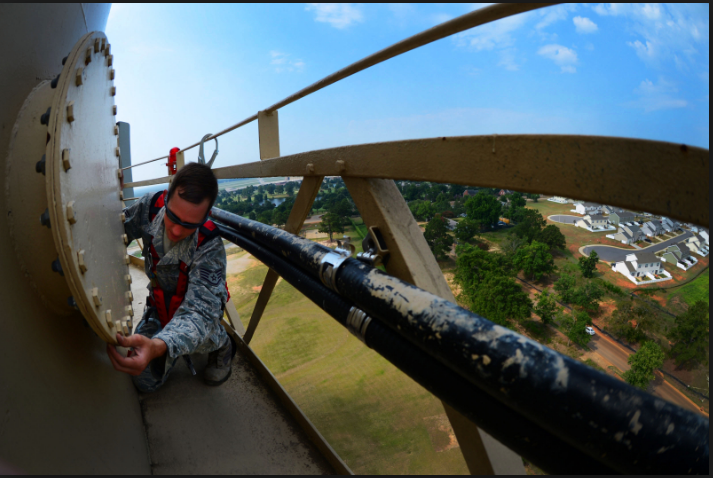
What They Do: They install, inspect, maintain, troubleshoot, modify, repair, and manage plumbing, water distribution, wastewater collection systems, water and wastewater treatment systems, fire suppression, backflow prevention systems, natural gas distribution systems, liquid fuel storage, distribution, and dispensing systems.
Minimum ASVAB Score: M47 & E28
92. Pest Management (3E4X3)

What They Do: They manage, evaluate, and execute pest management techniques and environmental compliance.
Minimum ASVAB Score: G38
93. Engineering (3E5X1)
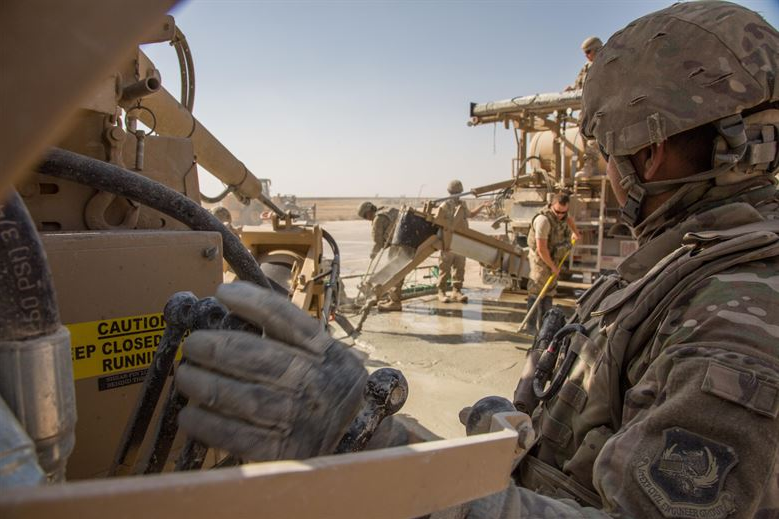
What They Do: They direct and perform civil engineering design, drafting, surveying, and contract surveillance to support facility construction and maintenance. They work with Computer-Aided Design (CAD) drawings, Building Information Modeling, construction contract specifications, and cost estimates.
Minimum ASVAB Score: G49
Related Article – ASVAB Scores for Coast Guard jobs
94. Operations Management (3E6X1)

What They Do: They activate and manage the Civil Engineering command and control centers during peacetime, wartime, and contingency operations. This includes processing and controlling work requirements and managing acquisitions for work performed by CE forces.
Minimum ASVAB Score: G44
95. Fire Protection (3E7X1)

What They Do: They protect people, property, and the environment from fire and disasters. This includes fire prevention, fire fighting, rescue, and hazardous material response.
Minimum ASVAB Score: G38
96. Explosive Ordnance Disposal (EOD) – 3E8X1

What They Do: They dispose of explosive ordnance to protect personnel, resources, and the environment from hazardous explosive ordnance, improvised explosive devices, and weapons of mass destruction. They use specialized tools, techniques, and personal protective equipment to diagnose, monitor, evaluate, interrogate, mitigate, render safe, recover, and dispose of these devices.
Minimum ASVAB Score: M47 & G50
97. Emergency Management (3E9X1)

What They Do: They administer major command and installation emergency management programs. This includes preparing, planning, training, educating, and equipping personnel and installation leaders. Emergency situations include major accidents, natural disasters, weapons of mass destruction, and wartime chemical, biological, radiological, nuclear, and high-yield explosive attacks.
Minimum ASVAB Score: G62
98. Personnel (3F0X1)
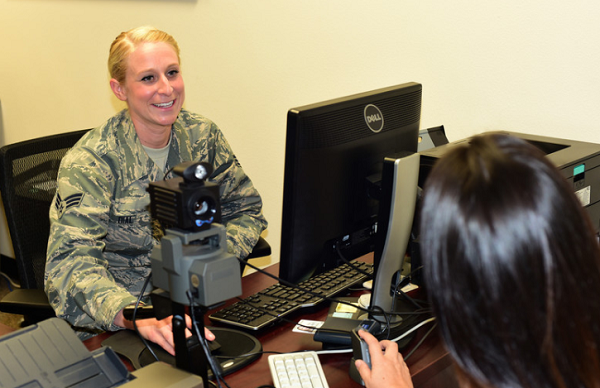
What They Do: They manage, supervise, and lead military personnel and human resource programs. They also analyze policy and provide recommendations to Air Force leadership on benefits, entitlements, career progression, retention, and relocation programs.
Minimum ASVAB Score: A41
99. Services (3F1X1)

What They Do: They manage and direct Force Support programs, operations, and retail operations, such as appropriated fund food service, lodging, recreation, fitness and sports programs, laundry, mortuary affairs, honor guard, protocol, missile alert facilities, and other readiness programs.
Minimum ASVAB Score: G24
Related Article – 20 Health Conditions That May Disqualify You From Military
100. Education and Training (3F2X1)

What They Do: They conduct education and training tasks for maintenance, operations, and support training. They also administer all education services, curriculum development, and instructor activities.
Minimum ASVAB Score: G59
101. Manpower (3F3X1)

What They Do: They are responsible for organization structure, requirements determination, program allocation and control, and performance management.
Minimum ASVAB Score: G66
102. Equal Opportunity (3F4X1)

What They Do: They perform, supervise, and manage all equal opportunity and human relations education programs.
Minimum ASVAB Score: A41 or G44
103. Administration (3F5X1)
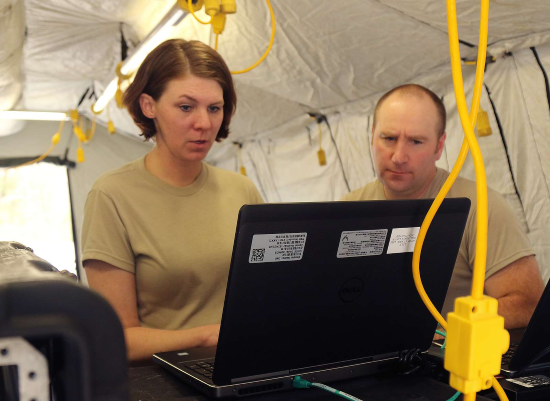
What They Do: They provide administrative support by coordinating, performing, and managing tasks such as office management, human resources, executive staff support, postal, official mail, and other duties.
Minimum ASVAB Score: A47
104. Air National Guard Strength Management (3G0X1)

What They Do: They organize and conduct programs to recruit and retain Air National Guard personnel.
Minimum ASVAB Score: N/A
105. Historian (3H0X1)
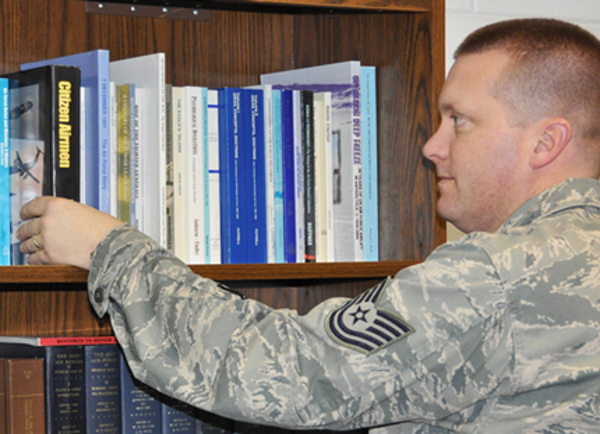
What They Do: They perform and manage historical activities, programs, and functions. They also conduct historical research and reference services, interview personnel, and prepare analytical historical publications.
Minimum ASVAB Score: G72
106. Broadcast Journalist (3N0X2)

What They Do: They plan, organize, coordinate, and conduct command information, community engagement, and media operations activities. This includes preparing material for internal and external audiences and conducting broadcast and production operations.
Minimum ASVAB Score: G72
107. Photojournalist (3N0X5)
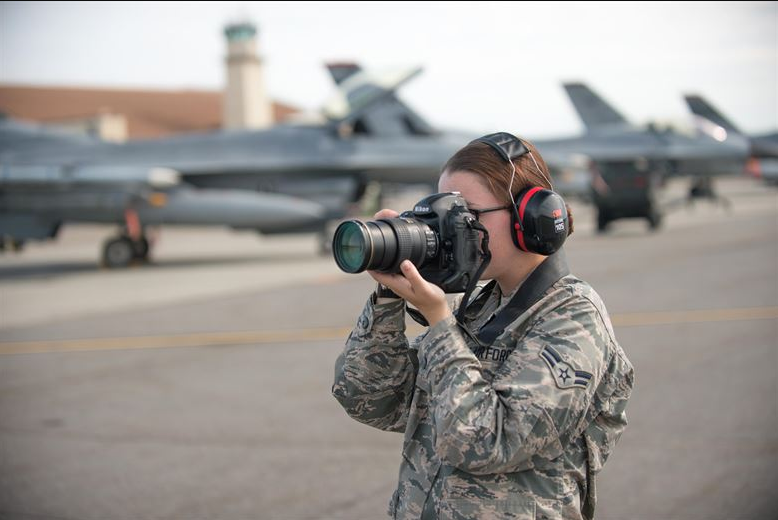
What They Do: They engage in digital and print photojournalism, including photography, writing, editing, and managing content for base websites and other social media platforms, periodicals, guides, pamphlets, and fact sheets.
Minimum ASVAB Score: G72
108. Regional Band (3N1X1)

What They Do: They perform as an instrumentalist, music arranger, vocalist, or audio and lighting engineer in military band activities.
Minimum ASVAB Score: G24 or A21
109. Premier Band (3N2X1)

What They Do: They perform as an instrumentalist, music arranger, vocalist, librarian, or audio and lighting engineers in the official USAF Band. This is only open to those at the Craftsman or Superintendent level.
Minimum ASVAB Score: G24 or A21
Related Article – Military Star Card Review: Worth Signing Up For?
110. Security Forces (3P0X1)

What They Do: They perform security force activities in support of 2/3 of the U.S. Nuclear Enterprise, weapon systems and physical security, law and order, military working dogs, combat arms, and area security operations.
Minimum ASVAB Score: G33
111. Health Services Management (4A0X1)

What They Do: They plan, develop, manage, and perform health services activities, such as patient management, health records, special orders, and resource management.
Minimum ASVAB Score: G44
112. Medical Material (4A1X1)

What They Do: They prepare and maintain the manual and mechanized accountable medical materiel records, as well as requisition, receive, store, issue, safeguard, and account for supplies and equipment.
Minimum ASVAB Score: G44
113. Biomedical Equipment (4A2X1)

What They Do: They install, inspect, repair, and modify biomedical equipment and support systems. This includes pre-purchase evaluations and implementing maintenance support for all devices used within a medical treatment facility.
Minimum ASVAB Score: E70 & M60
114. Bioenvironmental Engineering (4B0X1)
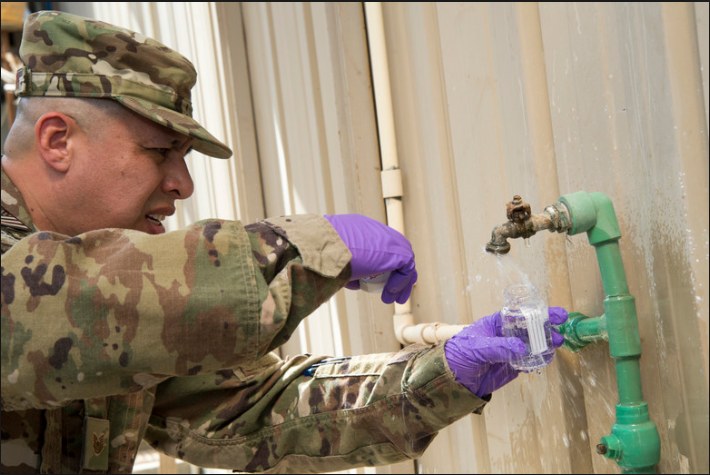
What They Do: They manage occupational and environmental health-related activities, such as anticipating, recognizing, evaluating, and controlling exposure to chemical, biological, and radiological hazards. They also perform health risk assessments by monitoring and sampling to identify any hazards.
Minimum ASVAB Score: G49
115. Mental Health Service (4C0X1)

What They Do: They support mental health services in the fields of psychiatry, psychology, social work, family advocacy, substance abuse prevention, treatment and aftercare, integrated operational support, and other programs.
Minimum ASVAB Score: G55
116. Diet Therapy (4D0X1)
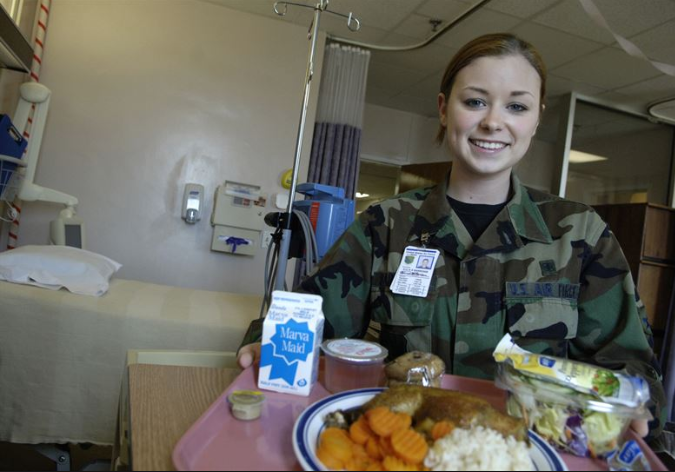
What They Do: They work in nutritional medicine, including procuring, storing, preparing, cooking, baking, and serving regular and therapeutic diets.
Minimum ASVAB Score: G44
117. Public Health (4E0X1)

What They Do: They work with community health management and force health management. Within community health management, they perform tasks such as communicable disease control and prevention, food safety and defense, facility sanitation, and public health contingency response. Within force health management, they are responsible for the medical deployment clearance processing, preventative health assessments, and individual medical readiness administration.
Minimum ASVAB Score: G44
118. Cardiopulmonary Laboratory (4H0X1)
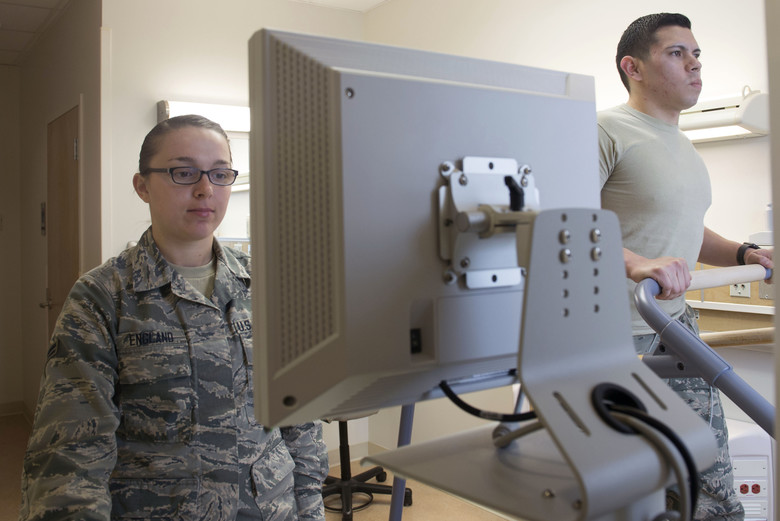
What They Do: They work with respiratory care services, noninvasive diagnostic cardiac procedures, invasive diagnostic and interventional cardiac procedures, pulmonary function testing, and diagnostic and therapeutic bronchoscopies.
Score: G44
119. Physical Medicine (4J0X2 & 4J0X2A)
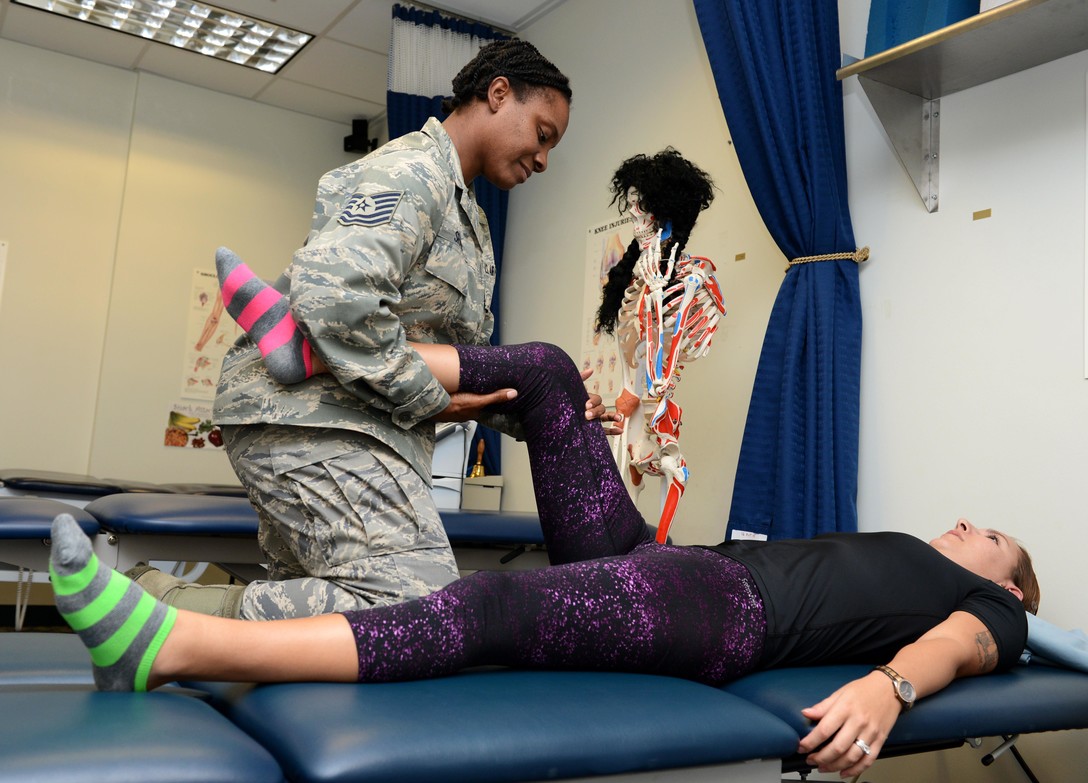
What They Do: They administer patient care activities as part of physical therapy, occupational therapy, and orthotic services, including implementing treatment plans.
Minimum ASVAB Score: G49
120. Aerospace and Operational Physiology (4M0X1)
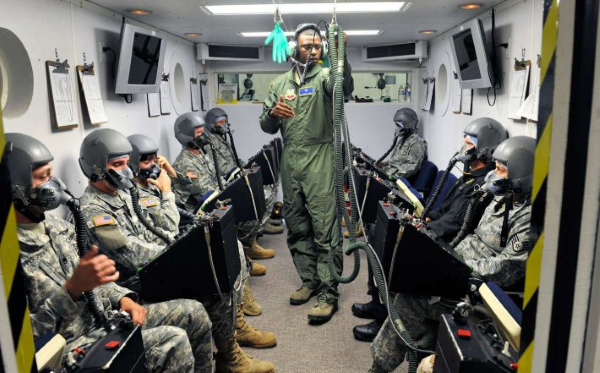
What They Do: They operate and maintain all aerospace physiology training devices, such as altitude chambers and related equipment. They also instruct and observe simulated flights and classroom instruction.
Minimum ASVAB Score: G44
Related Article – Basic Allowance For Housing (BAH) Calculator
121. Aerospace Medical Services (4N0X1)
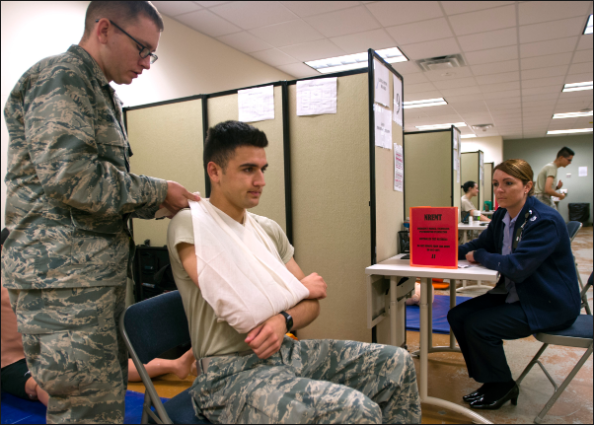
What They Do: They perform routine patient care of beneficiaries, including flying and special operational duty personnel. They work in patient care situations, including contingency operations and disasters.
Minimum ASVAB Score: G50
123. Surgical Services (4N1X1)

What They Do: They work in surgical patient care activities and training. They assist in providing care for patients before, during, and after surgery. They also perform scrub and circulating duties in the operating room.
Minimum ASVAB Score: G44
124. Pharmacy (4P0X1)

What They Do: They manage administrative and technical pharmacy activities, including requisitions, stocks, compounds, and dispensing pharmaceuticals.
Minimum ASVAB Score: G44
125. Diagnostic Imaging (4R0X1)
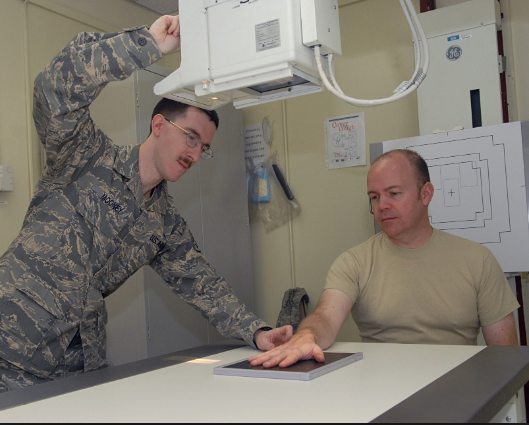
What They Do: They operate equipment to produce diagnostic images, such as x-rays and ultrasounds, and assist radiologists/physicians with special procedures.
Minimum ASVAB Score: G44
126. Medical Laboratory (4T0X1)

What They Do: They test and analyze specimens of human origin to help in diagnosing, treating, and preventing disease or as part of medical research.
Minimum ASVAB Score: G62
127. Histopathology (4T0X2)

What They Do: They work as part of autopsies by preparing autopsy and surgical specimens.
Minimum ASVAB Score: G44
128. Optometry (4V0X1)
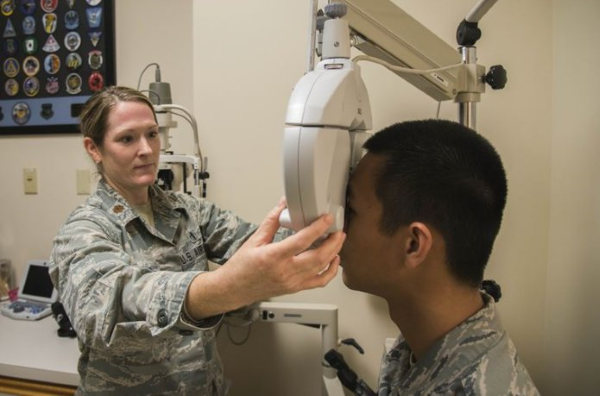
What They Do: They perform visual screening tests and assist in patient treatment. They also process all prescriptions for military eye-wear.
Minimum ASVAB Score: G55
129. Dental Assistant (4Y0X1 & 4Y0X1H)
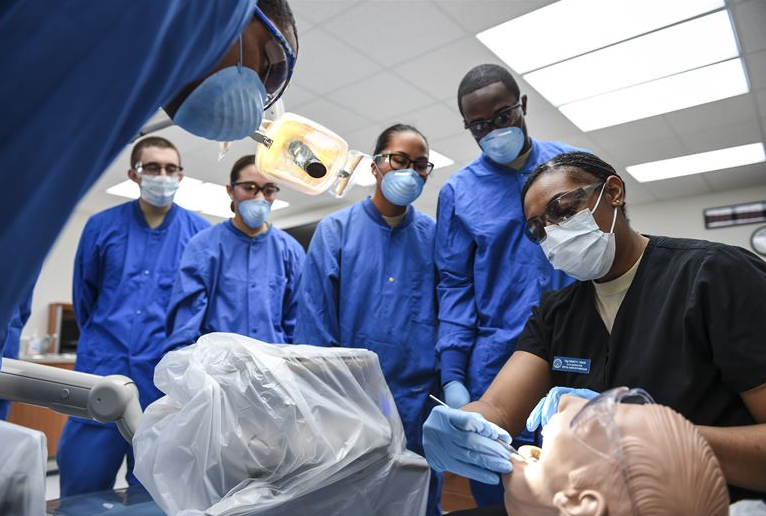
What They Do: They work as a paraprofessional performing oral hygiene duty, such as receiving patients, reviewing records, and preparing patients for treatment.
Minimum ASVAB Score: G44
130. Dental Lab (4Y0X2)

What They Do: They fabricate and repair dental and maxillofacial prostheses and appliances.
Minimum ASVAB Score: G66
131. Paralegal (5J0X1)
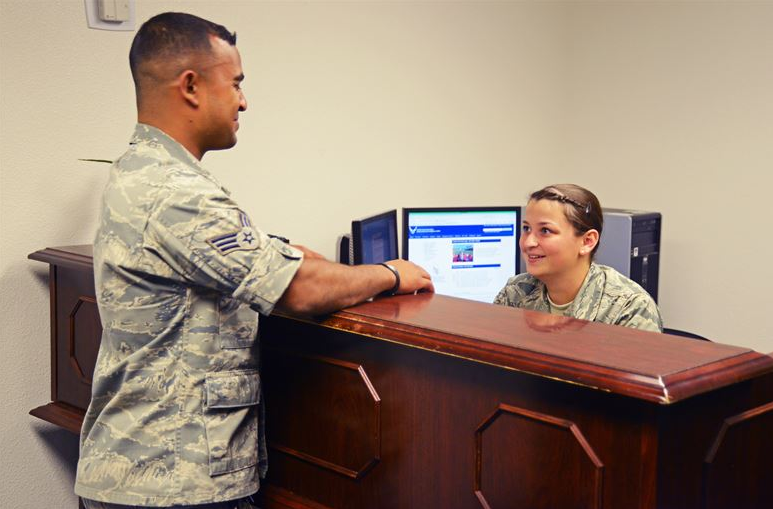
What They Do: They manage and perform legal functions under the supervision of an attorney, such as legal research, writing, analysis, interviewing, and discovery management.
Minimum ASVAB Score: G51
132. Religious Affairs (5R0X1)
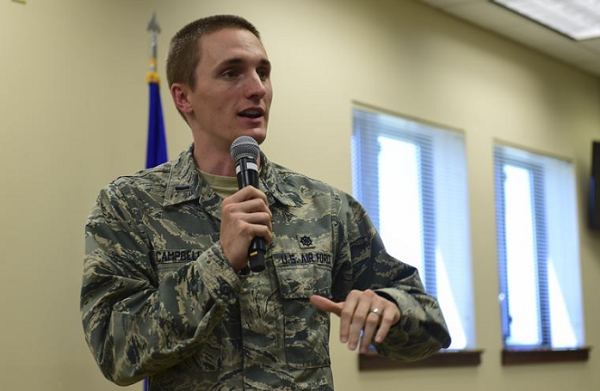
What They Do: They facilitate the free exercise of religion, advise leaders on religious accommodation, work in crisis intervention, and manage religious programs and religious ministries.
Minimum ASVAB Score: A35 or G44.
Related Article: 9 Common Private Military Contractor Jobs (and 3 uncommon ones)
133. Contracting (6C0X1)
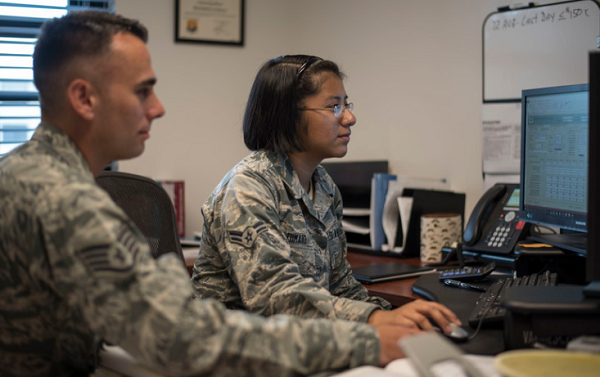
What They Do: They administer contracting functions for commodities, services, and construction using acquisition procedures, negotiation, and other methods. They also prepare, process, and analyze transactions and products.
Minimum ASVAB Score: G72
134. Financial Management and Comptroller (6F0X1)

What They Do: They provide financial decision support, services, and resources. They maintain financial records for pay, travel transactions, and accounting records.
Minimum ASVAB Score: G57
Related Article – 101 Military Care Package Ideas
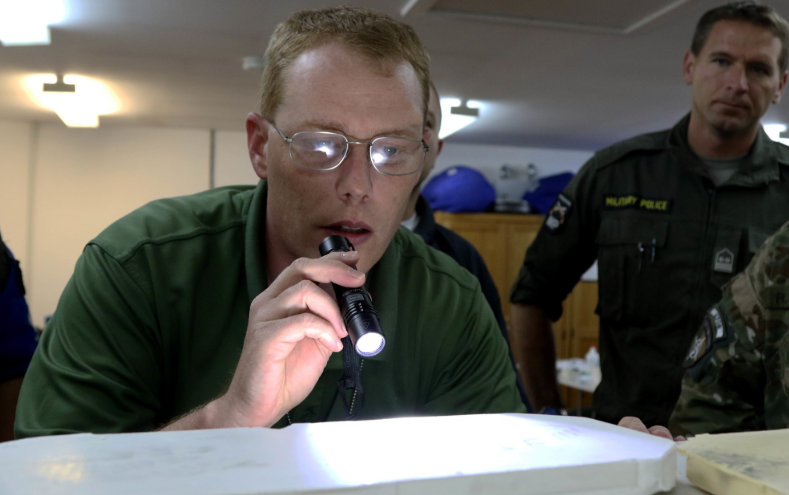
What They Do: They conduct criminal, economic crime, counterintelligence, force protection, personnel suitability, computer crime, technical services investigations, counter threat operations, and special inquiries.
Minimum ASVAB Score: G44
136. Scientific Applications Specialist (9S100)
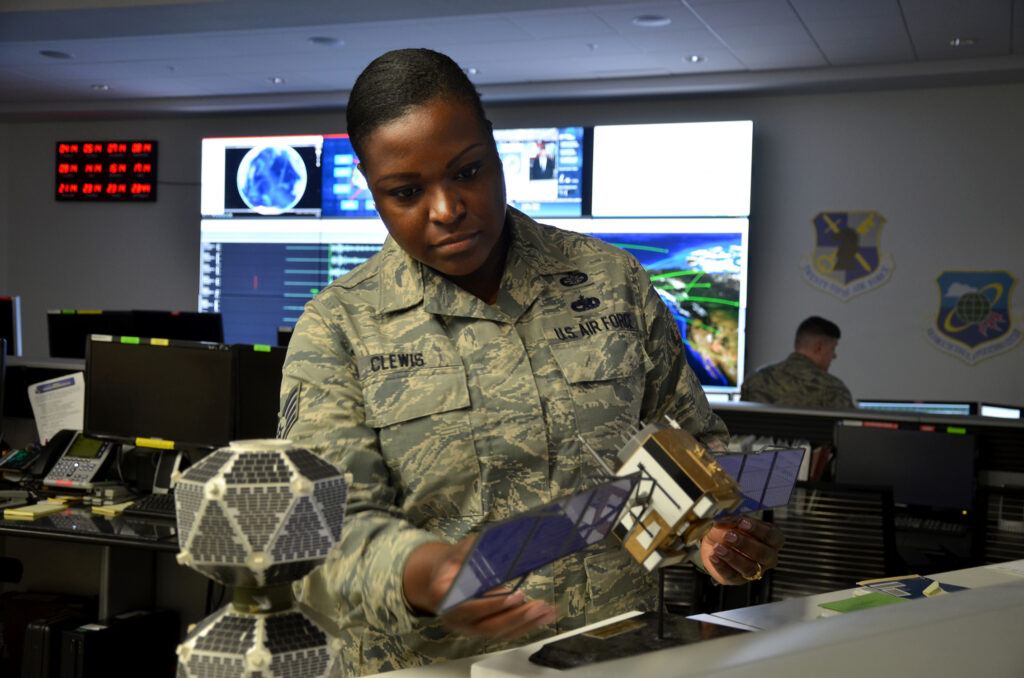
What They Do: These specialists use their skills in chemistry, math, data analysis, physics, and engineering to perform research and evaluate specialized data to develop unique assets for the USAF.
Minimum ASVAB Score: M88 & E85
How many jobs are there in the Air Force?
As of 2023, there are currently over 200 AFSCs available to both officers and enlisted.
Does the Air Force have MOS?
The Air Force does not call their jobs ‘MOS’. Rather, they are referred to as Air Force Specialty Codes, or AFSCs.
Can you pick your job in the Air Force?
You do have some say in the AFSC you choose when enlisting. However, just like with the other branches, obtaining that job will depend on the needs of the Air Force and various other factors.
What Air Force jobs travel the most?
While most jobs will allow you some travel, by far any flight career will afford you the most travel. Those jobs include crew chief, flight engineer, pilot, and boom operator, to name just a few.
What is the best job in the Air Force?
Careers such as Paralegal, Logistics Planner, Law Enforcement, and Air Traffic Controller provide some of the most rewarding career opportunities upon completion of your service in the Air Force.
Check out some of the jobs in other branches below:
References:
- 5 Worst Jobs in the Air Force - June 20, 2024
- 4 Steps For Visiting An Air Force Recruiter Near You - June 19, 2024
- Air Force Safety Specialist (1S0X1) - June 19, 2024

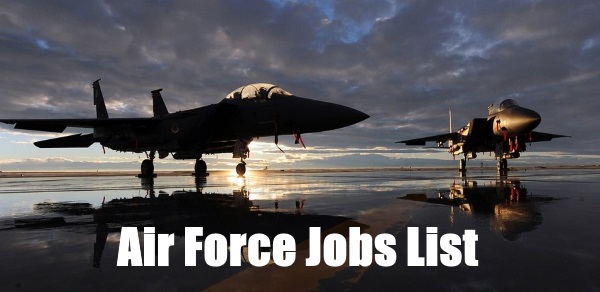
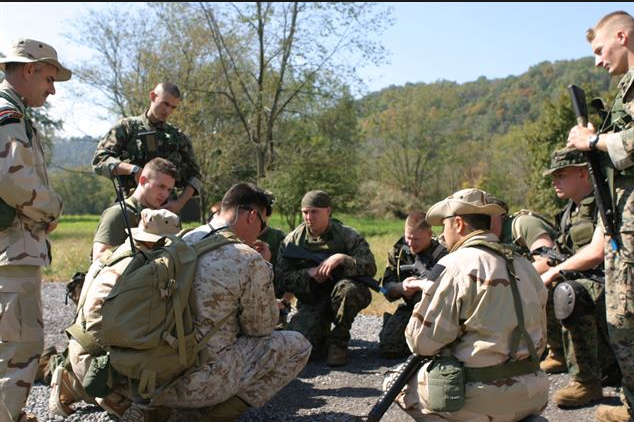


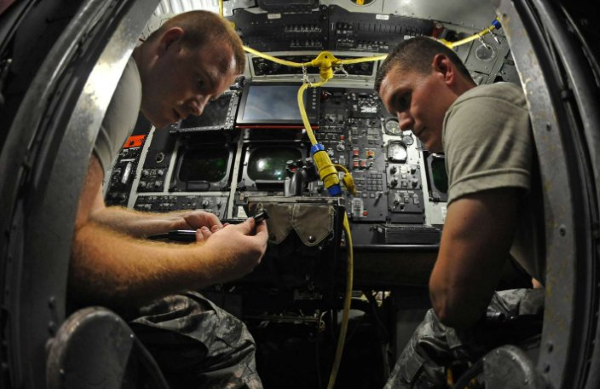

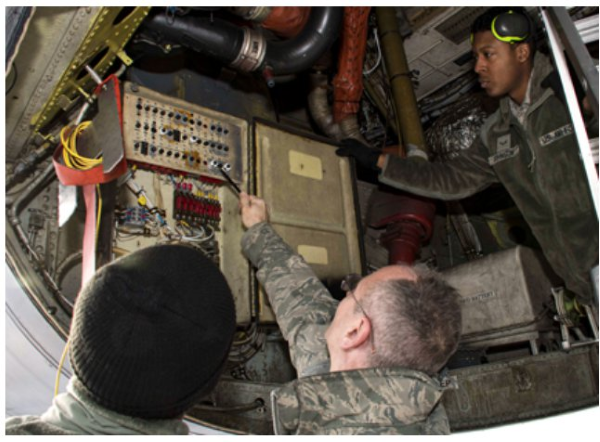
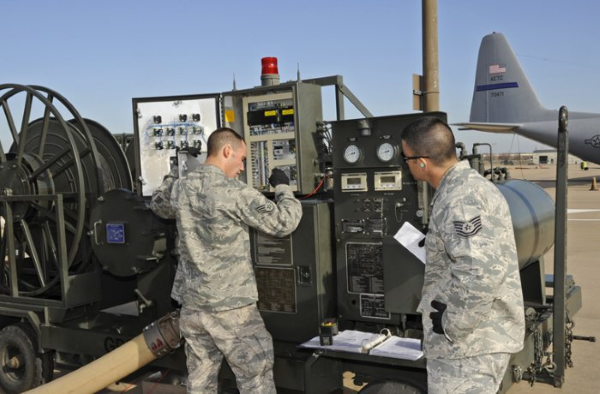
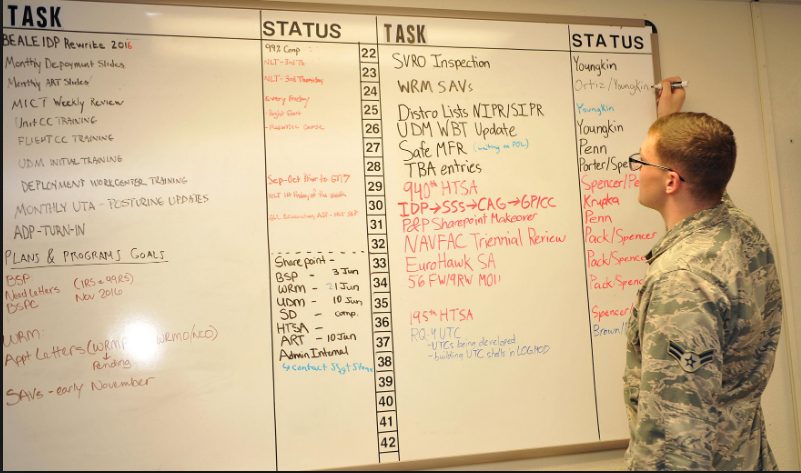



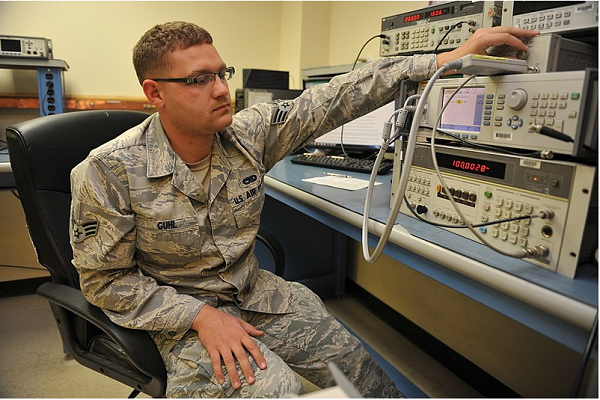






Swimsuit ads, while nice to look at, have no place on this site of descriptions of military jobs. The Air Force, like all branches of the military, are apolitical, meaning they have no political agendas. We are not allowed to express our political views, therefore, political ads, like the ones from Amy Mc Graff also have no place on this site. I have marked all these ads on this site as “inappropriate.” THEY DO NOT BELONG HERE.
Hey Robert,
I have no control over what types of ads are shown on this site. It’s all controlled by the company that hosts them (Mediavine), and Googles ad platform. With that said, marking them as ‘inappropriate’ is about the best thing you can do for this. Hope this helps, take care.
Rob V.
OperationMilitaryKids.org Founder
Bro it really ain’t that serious